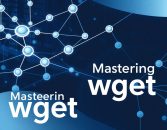
Understanding the Web Scraping Landscape
In the digital age, data has become the most valuable currency, and web scraping represents a powerful mechanism for extracting actionable insights from the vast online ecosystem. As someone who has spent years navigating the complex world of digital information extraction, I‘ve witnessed firsthand the transformative potential of sophisticated proxy technologies.
Web scraping is more than just a technical process—it‘s an art form that requires strategic thinking, technical expertise, and a deep understanding of network dynamics. Whether you‘re a data scientist, market researcher, or business intelligence professional, mastering proxy usage can unlock unprecedented opportunities for competitive intelligence and strategic decision-making.
The Evolution of Web Scraping Technologies
The journey of web scraping has been marked by continuous technological innovation. What began as simple screen-scraping techniques has evolved into complex, intelligent data extraction systems powered by advanced proxy infrastructures. Modern web scraping is no longer about blindly collecting information but strategically navigating digital landscapes while maintaining ethical standards and technical sophistication.
Proxy Technology: The Backbone of Effective Web Scraping
Proxies serve as critical intermediaries between your scraping infrastructure and target websites. They provide a layer of anonymity, flexibility, and performance optimization that is essential in today‘s increasingly restrictive digital environments.
Types of Proxy Servers
Understanding proxy server classifications is crucial for developing effective scraping strategies. Each proxy type offers unique advantages and challenges:
Residential Proxies
Residential proxies represent the gold standard in web scraping. Sourced from real residential internet service providers, these IP addresses appear genuine and carry significant credibility. They offer exceptional anonymity and low detection probabilities, making them ideal for complex scraping scenarios that demand high trust levels.
When you utilize residential proxies, you‘re essentially borrowing legitimate IP addresses from real-world internet users. This approach significantly reduces the likelihood of being flagged or blocked by target websites. The organic nature of these IP addresses means your scraping activities blend seamlessly into normal internet traffic.
Datacenter Proxies
Datacenter proxies emerge from cloud server infrastructures and provide high-speed, cost-effective alternatives to residential proxies. While they offer remarkable performance, they are more likely to be detected by advanced website protection mechanisms. These proxies work exceptionally well for scenarios requiring rapid data extraction and where detection risks are minimal.
Mobile Proxies
Mobile proxies represent the cutting edge of web scraping technologies. Routed through cellular network IP addresses, they provide unparalleled flexibility for mobile-specific scraping requirements. The dynamic nature of mobile IP addresses ensures continuous rotation and reduced detection risks.
Technical Implementation Strategies
Successful web scraping demands a strategic approach that combines technical sophistication with ethical considerations. Here‘s a comprehensive framework for implementing proxy-based scraping infrastructures:
Proxy Selection Criteria
When selecting proxies for your web scraping project, consider the following critical factors:
- IP Reputation: Choose proxies with clean historical records and minimal blacklist associations.
- Geographical Distribution: Ensure your proxy pool covers diverse global regions.
- Rotation Frequency: Implement dynamic IP rotation to minimize detection risks.
- Bandwidth Capabilities: Select proxies offering sufficient data transfer speeds.
- Authentication Mechanisms: Prioritize proxies supporting robust security protocols.
Advanced Configuration Techniques
Implementing intelligent proxy rotation requires sophisticated programming approaches. Consider the following Python-based implementation:
def intelligent_proxy_rotation(proxy_pool, scraping_parameters):
"""
Dynamically manage proxy selection and rotation
\[Parameters\]:
- proxy_pool: Collection of available proxy configurations
- scraping_parameters: Specific extraction requirements
\[Returns\]:
- Optimized proxy configuration
"""
selected_proxy = optimize_proxy_selection(proxy_pool, scraping_parameters)
return selected_proxyLegal and Ethical Considerations
Web scraping exists in a complex regulatory landscape that demands careful navigation. Ethical data collection involves:
- Respecting website terms of service
- Adhering to
robots.txtguidelines - Avoiding excessive request volumes
- Protecting personal and sensitive information
- Maintaining transparent scraping practices
Performance Optimization Techniques
Maximizing scraping efficiency requires a holistic approach to proxy management:
Scalability Strategies
- Implement distributed proxy networks
- Develop intelligent request queuing mechanisms
- Utilize parallel processing architectures
- Create adaptive retry frameworks
Error Handling and Resilience
Robust scraping infrastructures must incorporate comprehensive error management strategies. Develop flexible systems capable of gracefully handling connection interruptions, IP blocks, and unexpected network challenges.
Future Technological Trends
The web scraping ecosystem continues to evolve rapidly. Emerging technologies like AI-powered proxy selection, blockchain-based networking, and machine learning detection evasion will reshape data extraction methodologies.
Conclusion: Strategic Proxy Deployment
Successful web scraping in 2024 demands a nuanced approach combining technical expertise, ethical considerations, and adaptive strategies. By understanding proxy ecosystems and implementing robust architectural patterns, you can unlock unprecedented data acquisition capabilities.
Key Strategic Insights
- Select proxies aligned with specific use cases
- Prioritize ethical data collection
- Implement multi-layered anonymity techniques
- Continuously adapt to technological shifts
The future of web scraping lies in intelligent, responsible, and technologically sophisticated approaches that respect both technological capabilities and ethical boundaries.






